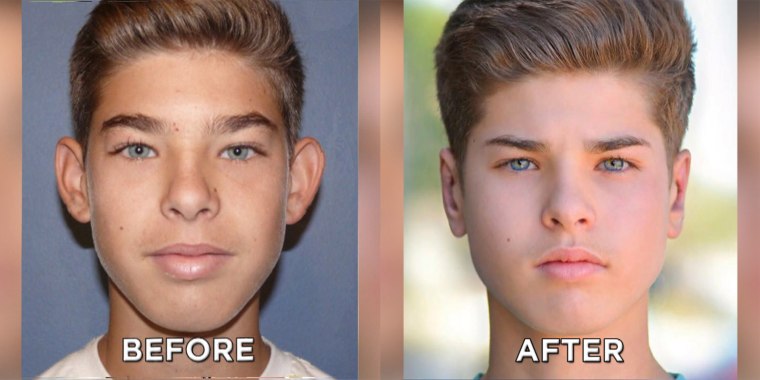Facelift Rancho Cucamonga: Smooth Wrinkles and Tighten Skin for a Vibrant Appearance
Investigating the Emotional and Social Aspects That Drive People to Take Into Consideration Plastic Surgery as a Way of Improvement
The decision to seek cosmetic surgery typically extends past simple visual appeals, linking with psychological and social characteristics that warrant complete exam. Variables such as self-worth, pervasive social charm criteria, and the prevalent influence of social media converge to shape private motivations for surgical enhancement. As these impacts come to be significantly popular, understanding the underlying emotional and social contexts is crucial. What continues to be to be checked out is the profound effect these factors have not only on personal identification however additionally on broader societal norms and values surrounding appeal and approval.
The Duty of Self-confidence
Self-esteem significantly influences a person's choice to seek cosmetic surgical procedure. Individuals with low self-esteem typically view themselves in a negative light, bring about feelings of inadequacy regarding their physical appearance. This negative self-perception can drive them to seek medical interventions as a method of enhancing their self-image. The need for improvement in one's look is often linked to an idea that such modifications will boost their overall self-respect and self-confidence.

Ultimately, the function of self-worth in the decision-making process pertaining to plastic surgery highlights the intricate interplay in between body picture, individual contentment, and mental wellness. Comprehending this connection is essential for health care specialists to make certain that individuals are making educated decisions rooted in realistic expectations and emotional well-being.
Social Appeal Specifications
Influenced by pervasive media portrayals and cultural narratives, social elegance criteria play a crucial duty fit people' assumptions of their very own bodies. These criteria are often identified by an idyllic type of beauty that emphasizes characteristics such as slimness, balance, and youthfulness. As these perfects are bolstered via numerous networks, including film, tv, and marketing, individuals often internalize these messages, causing dissatisfaction with their all-natural appearance.
The ramifications of these societal norms expand past aesthetic preferences; they can influence self-esteem, mental health and wellness, and interpersonal partnerships. People who regard themselves as disappointing these requirements might experience sensations of inadequacy, prompting a need for cosmetic surgical procedure as a way of accomplishing social authorization. This quest is usually sustained by the idea that adapting these ideals will certainly improve not only physical appearance yet additionally social standing and individual gratification.

Influence of Social Media Site
The effect of social charm standards is further intensified by the rise of social networks systems, where curated images and idealized representations of beauty are ubiquitous. Users are frequently exposed to filtered and modified pictures, which often illustrate unattainable physical characteristics. This direct exposure cultivates a culture of contrast, leading individuals to assess their very own look versus these commonly impractical criteria.
Social network influencers and celebrities regularly promote cosmetic procedures, normalizing the notion that medical improvements are a feasible means for accomplishing societal perfects (plastic surgery rancho cucamonga). The visibility of these enhancements can develop an understanding that going through cosmetic surgical procedure is a typical practice, therefore influencing individuals to consider comparable interventions as a pathway to improved self-confidence and social approval
Furthermore, the interactive nature of social networks permits for instant feedback through likes and remarks, better strengthening the desire to adapt prominent beauty standards. Such interactions can aggravate sensations of inadequacy and drive people towards cosmetic surgical treatment as a way of getting validation. Ultimately, social networks plays a crucial function fit assumptions of elegance, which considerably impacts the decision-making procedures bordering plastic surgery.

Social Point Of Views on Look
Throughout numerous societies, assumptions of look are deeply rooted in historic, social, and financial contexts, shaping people' views on charm and value. In numerous societies, appearance acts as a considerable pen of identity, influencing social standing, specialist possibilities, and individual relationships. For example, in some societies, light skin is frequently connected with wealth and opportunity, while others may idealize darker complexion as symbols of toughness and credibility.
Moreover, conventional charm requirements are commonly continued with cultural narratives, media representations, and household influences, leading to varying perfects across different areas (plastic surgery rancho cucamonga). In Western cultures, the emphasis on youth and physical health and fitness commonly drives people towards cosmetic enhancement, while in specific Eastern societies, more subtle changes straightened with conventional looks may be preferred
Globalization and the proliferation of electronic media have actually even more complicated these characteristics, developing a hybridization of beauty perfects that transcends geographical boundaries. As individuals increasingly browse these cultural narratives, the pressure to conform to specific look criteria can result in the desire for cosmetic surgical treatment, showing a complicated interplay of cultural values and individual aspirations. Comprehending these social perspectives is crucial in dealing with the motivations behind cosmetic surgical treatment considerations.
Psychological Impacts of Cosmetic Surgery
Numerous individuals seeking cosmetic surgical procedure report experiencing extensive emotional effects that can substantially modify their self-perception and psychological health - plastic surgery rancho cucamonga. The wish for physical enhancement often stems from underlying issues such as reduced self-esteem, body dysmorphic disorder, or societal pressures relating to beauty requirements. For some, the prompt post-operative phase can bring about a momentary boost in confidence and contentment with their useful reference look, promoting a sense of empowerment
Nonetheless, these positive sensations may not be sustaining. Research study shows that while some clients experience boosted self-confidence, others might face elevated stress and anxiety or depression if their expectations are not fulfilled. This disparity can emerge from impractical suitables bolstered by media depiction and cultural stories surrounding appeal.
Furthermore, the mental implications of cosmetic surgical treatment extend past the individual. Relationships with household and pals may be stressed as social dynamics change, leading to feelings of seclusion or alienation. Eventually, the emotional impacts of plastic surgery are complex and intricate, needing cautious consideration by both prospective clients and doctor to make sure informed decision-making and realistic expectations.
Conclusion
Finally, the choice to pursue plastic surgery is dramatically affected by a mix of self-esteem issues, social elegance criteria, and social point of views on appearance. The pervasive reach of social networks additionally intensifies these stress, promoting unrealistic perfects that people usually strive to attain. Recognizing these social and psychological elements is necessary for dealing with the motivations behind plastic surgery, highlighting the requirement for a more nuanced discussion surrounding appeal and self-acceptance in contemporary culture.
The decision to seek cosmetic surgical treatment often extends past simple aesthetic appeals, intertwining with social and psychological dynamics that warrant thorough exam. Ultimately, social media plays a pivotal duty in shaping assumptions of charm, which significantly impacts the decision-making procedures surrounding cosmetic surgical treatment.
As people progressively navigate these social narratives, the stress to adhere to specific appearance criteria can lead to the need for cosmetic surgery, reflecting an intricate interaction of cultural worths and individual goals.In conclusion, visite site the choice to pursue cosmetic surgical treatment is considerably influenced by a mix of self-confidence issues, social elegance requirements, and find here social viewpoints on look. Recognizing these psychological and social factors is necessary for addressing the inspirations behind cosmetic surgery, highlighting the requirement for a more nuanced conversation surrounding beauty and self-acceptance in modern culture.